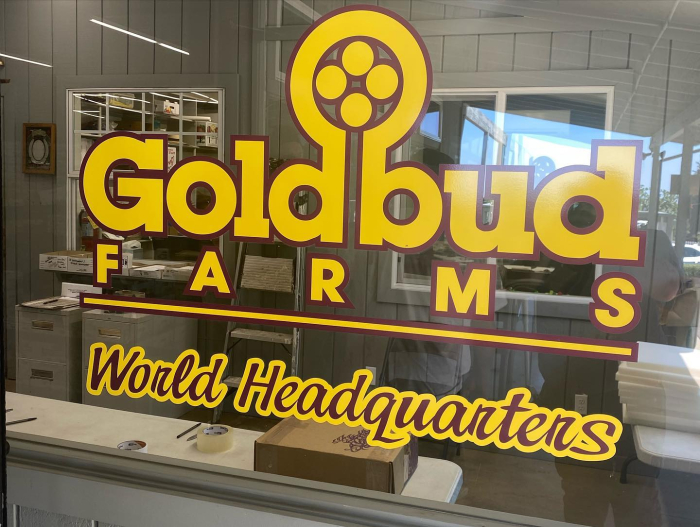Introducing the Fenaughty Vineyard, the newest addition to our Lignée de Tablas series... and the Mansfield family responsible for its greatness
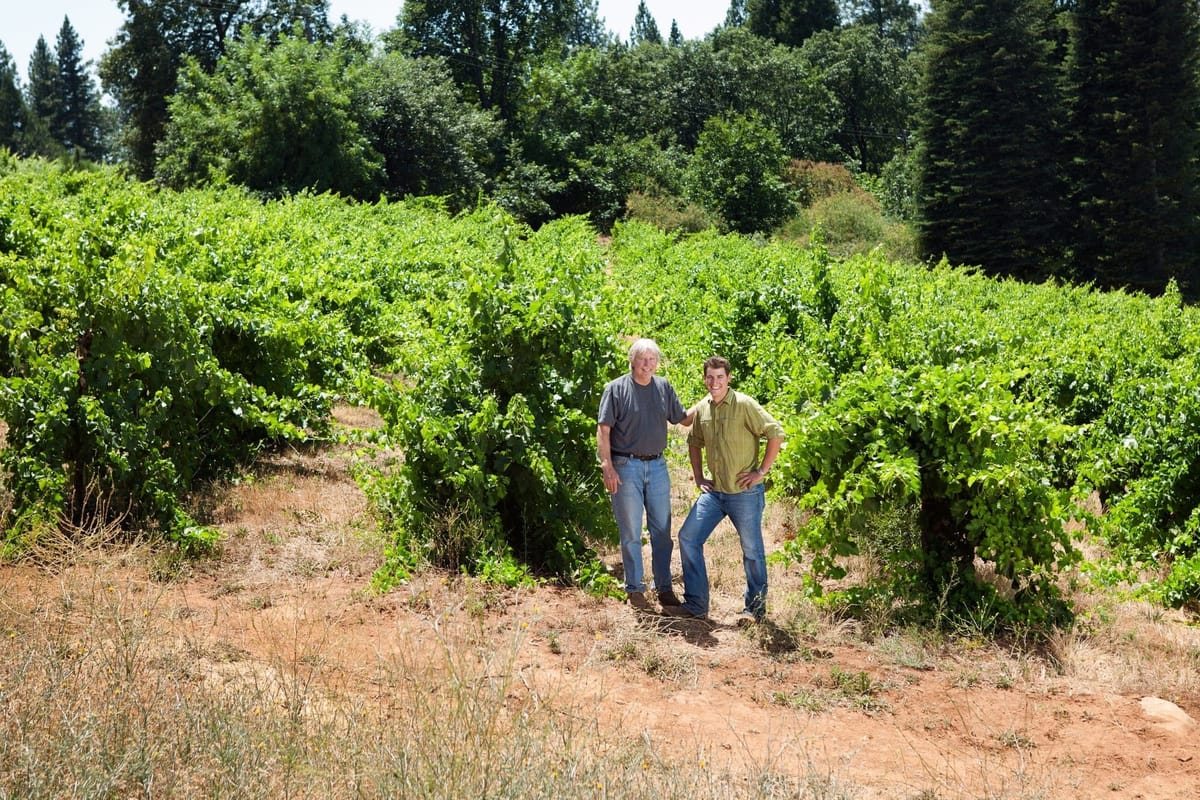
By Austin Collins
With the recent release of the 2024 Lignée de Tablas Fenaughty Blanc and the upcoming release of the 2023 Lignée de Tablas Fenaughty (red) we thought it was high time we shared what makes the Fenaughty Vineyard so special. A big part of this is the remarkable family behind it: the Mansfields of Goldbud Farms.
Sitting at around 2800 feet of elevation in California's Sierra Foothills, a few miles east of the town of Placerville, the hills of the Fenaughty Ranch present a strikingly different landscape than that of west Paso Robles. The deep green of the surrounding conifers contrast with the red hue of the Aiken clay loam soils. Aiken clay is the outcome of decomposed basic lava rock, which makes for a very well draining soil. The Fenaughty ranch receives an average of 38 inches of rain per year as well as a few solid snowstorms, some of which reach the cordon at three feet! Although the snow is fleeting and rarely lasts through the warmer day-time highs of the foothills, the slow percolation of that snowmelt along with such ample rain means that the need for irrigation is low.
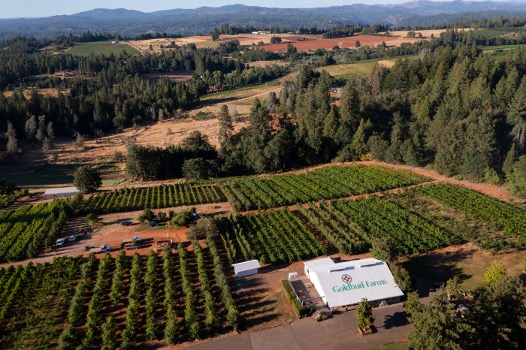
In the late 1970s, Ron Mansfield, a recent graduate of UC Davis, was hired by the El Dorado Irrigation District to implement a state-of-the-art Irrigation Management System. In 1979, impressed by Ron's work, the late Al Fenaughty hired him to care for his land, at the time an aging orchard of Bartlett pears. Sadly, the pears would not last, as fire blight was quickly spreading and destroying many of the pomme orchards around California. Seeing that pears were on their way out, Ron planted a diverse crop of peaches, apples, Bing cherries, and grapes at Fenaughty and named his growing business Goldbud Farms. The incredible high quality "mountain fruit" he was producing did not go unnoticed. Catalyzed by recognition from several high-end provision markets and distributors, the fruit of Goldbud Farms made its way across the country. Goldbud fruit became highly sought after from Sacramento to Martha's Vineyard and famously "fed every president from Reagan to Obama". Goldbud Bing cherries were even sent home to Russia as a gift with then-Russian President Boris Yeltsin. Together, Fenaughty and Mansfield strove for the highest quality of fruit possible. So, when Ron turned his attention to wine grapes, there was only going to be one outcome.
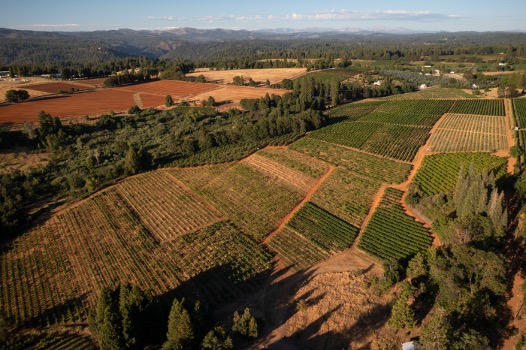
In 1981, Ron planted Syrah at the Fenaughty Ranch, just before the establishment of the region as a part of the El Dorado AVA in 1983. Syrah was still relatively unknown to much of the public so the initial harvests were mainly targeted and sold to home-winemakers, some of whom entered their wines into local fair competitions. Surprisingly, this is what got the attention of some original Rhone Rangers, especially Bill Easton of Terre Rouge and Steve Edmunds of Edmunds St. John. Through the 2000's, with Steve's encouragement, Ron proceeded to plant other Rhone varieties, including Tablas Creek clones of Mourvedre, Grenache, Marsanne, Grenache Blanc, Roussanne, Bourboulenc, and Picardan, and saw them thrive in the climate and soils. The focus on wine grapes intensified when Ron's son Chuck graduated from Cal Poly with a degree in Wine and Viticulture and joined the family business in 2006. The photo below of Ron (left) and Chuck (right) is from the Viticulture section of the Goldbud Farms website:
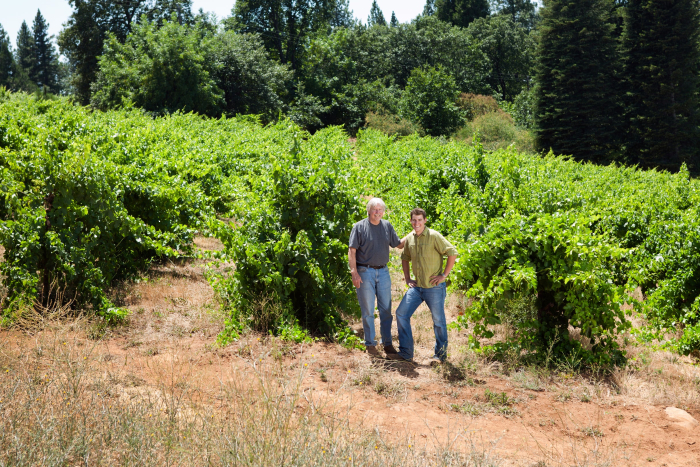
Edmunds St. John continued to purchase fruit from the Fenaughty ranch for decades until Steve's recent retirement. As Steve ramped down his production, that opened up some availability, and with the encouragement of Bill Easton we reached out to Chuck to buy some red grapes to add to our Lignée de Tablas series of wines in 2023. We added white grapes from the ranch in 2024, a year that sadly coincided with Ron's loss of his battle with Parkinson's Disease. But the vineyard didn't skip a beat, as Chuck's attention to detail in the 30 acres of vineyards is as strong as it is for the rest of the business. Everything is considered when managing the vineyards, from planting to harvest. This is Chuck at Fenaughty this spring:
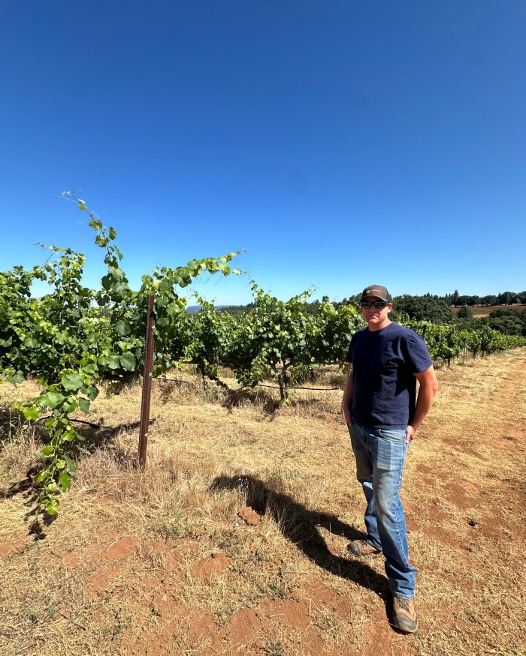
The red Rhone varieties at Fenaughty are head-trained to a vertical cordon and largely dry farmed. You can see the omnidirectional structure of the head-trained red varieties in the below photo:
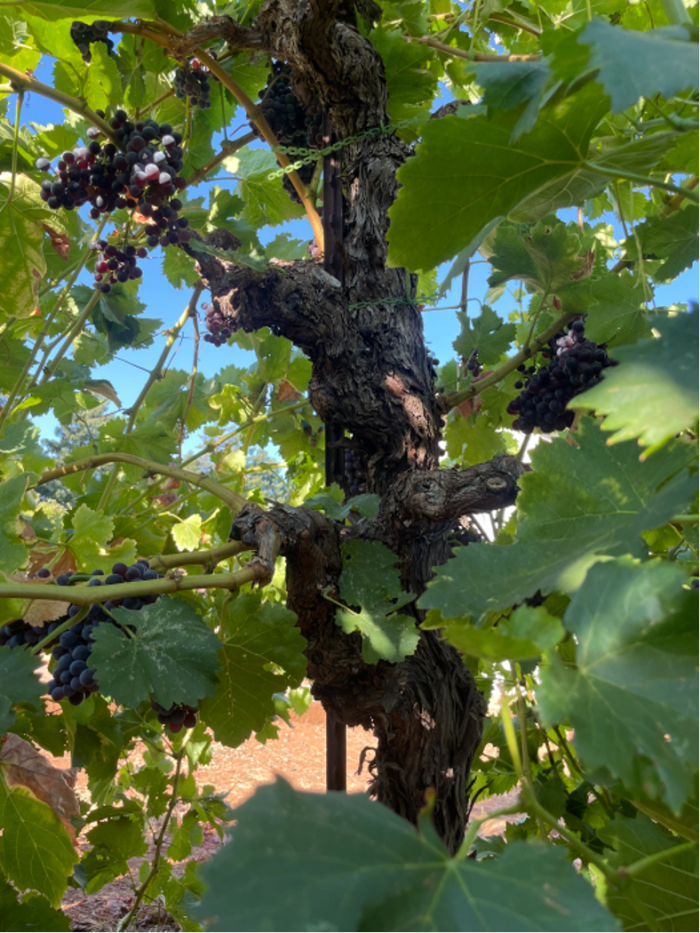
Fenaughty's white varieties are typically trained on a trellis with slightly tighter spacing between vines; these do receive some irrigation but usually only one to two times per year. At Fenaughty, the trellised vines are all planted in east to west rows. Chuck believes this gives them greater control when it comes to cultural practices in the vines, which is very important in an organically farmed operation. Having a north-facing side to the row allows them to remove more leaves for airflow and dappled-light penetration. This lets the fruit clusters ripen more evenly whilst also allowing the airflow to aid in the natural defense of powdery mildew.
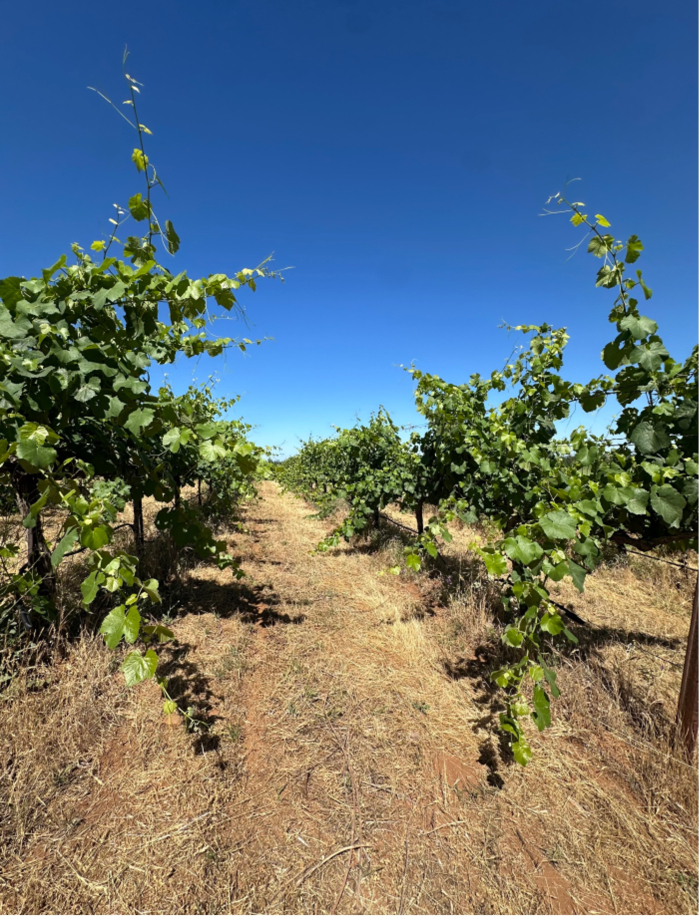
Canopy management is meticulous and thoughtful at Fenaughty, as is the management of the vineyard floors. Fenaughty ranch is a no-till operation, meaning they do not run any sort of disc or deep harrow. When stands of noxious plants show up in certain areas, Chuck incorporates a cover crop seed mix to outcompete the invaders. Typically these cover crops are left to go to seed thus eliminating the need to replant every single year. Once they have dropped their seeds, the vineyard sees up to two mowing passes a year.
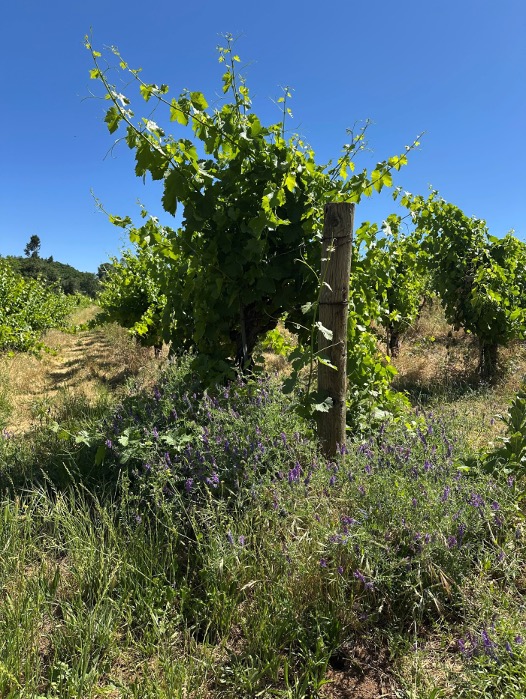
They do not currently run any animals on the property. With already so much on his plate, Chuck doesn't yet feel the need to add another burden. Plus, the resident Mourvèdre-loving bear would most certainly give them a hard time!

Diversified farming is the core of what keeps Goldbud Farms so relevant, and so impressive! Having always been a tree fruit-driven business, but with the ability to farm impeccable grape vines, they keep their options open in the unforgiving world of agriculture. Farming is a difficult endeavor. Economic and social markets are constantly shifting with the interest in what and how things are grown. It is a relentless job that has no sympathy for fatigue or sickness. It is one of the few industries that can be upended both by mother nature and by societal shifts, and it is often thankless. So, always remember to thank farmworkers! And, when you open up one of Tablas Creek's Fenaughty wines, tip your hat to the folks at Goldbud Farms, and to all the boots in the dirt.
